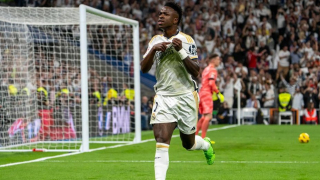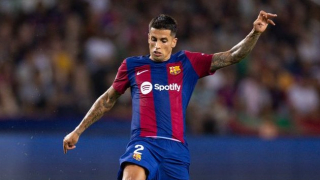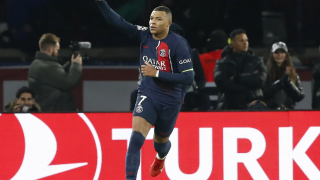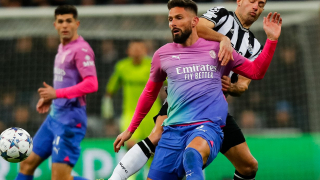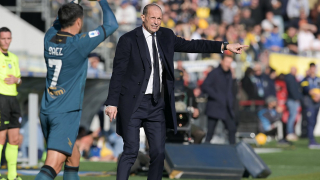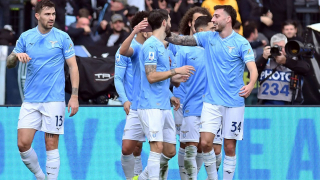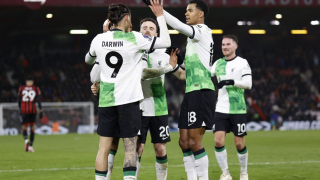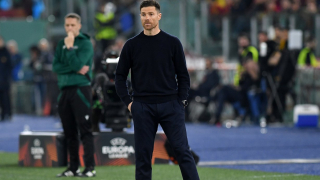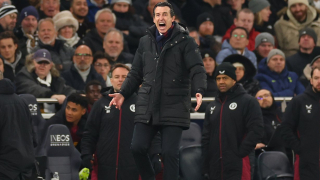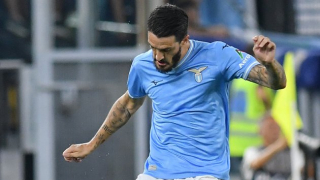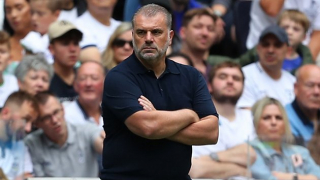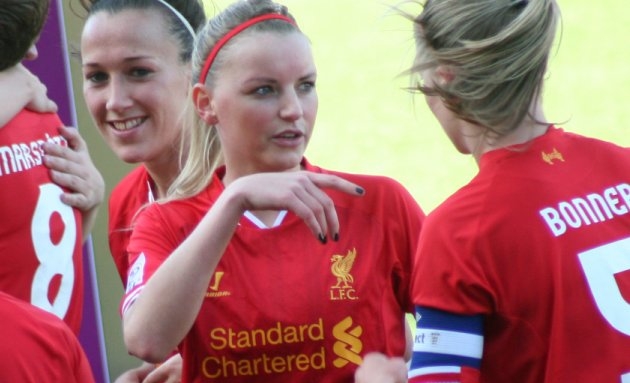Live from the Women's World Cup. We have more from New Zealand women's national team head coach Tom Sermanni, who this reporter interviewed in Grenoble after their Group E match against Canada, in which they lost 2-0. He talked specifically about improving the development of the sport in New Zealand and specifically how the W-League could play a role. Also, we present the news that Sermanni will stay to head up the countries' Olympic Games Final appearance next summer.
Tom Sermanni's thoughts on improving New Zealand's Women's Football Development
Part of attending the Women's World Cup every 4 years for me is the chance to assess the state of development in the game around the world, particularly in countries that are either remote or that we don't hear much from. New Zealand definitely fits the first criteria and arguably the second. When asked what New Zealand can do to improve its program after their second Women's World Cup match against Canada on June 15 in Grenoble, head coach Tom Sermanni said: "I've only been here 10 minutes [8 months]. I'm very cautious about what to stay. There are a lot of good things going on in the country. The key thing, as I found with the likes of Australia [who he coached on two occasions], is your talent identification is really, really critical and then once you do that, getting those players into a program that takes them to the next level."
Sermanni was a key founder of the 11 year old W-League in Australia and said that they [New Zealand Football Federation officials] had thought of possibly having Football Ferns pool players join the league and there were two issues: "New Zealanders are foreign players in the W-League. If they were domestic, it would be great. So being foreign players, usually it has to be more experienced international players that go there. Really most of our players who are eligible for that are players in Europe and the European season doesn't fit in with the W-League [which typically ends in November except for the Scandinavian countries], so that makes it too difficult to get the players in [the W-League] like we really need to get in there."
When asked about the possibility of having New Zealand-based clubs join the W-League, Sermanni said: "We've looked at the possibility of that. We would love to do it in New Zealand. From the Australian perspective, they would look at the finances and what benefit it would do for Australian football to being in New Zealand when they could bring in another Australian team, which logistically, financially and development-wise, would be better for them. Convincing them to bring in a New Zealand team is difficult." Note: In a previous column, we have explored the possibility of more W-League clubs coming on board and there really are limited options for new markets. [https://www.tribalfootball.com/articles/the-week-in-women-s-football-future-of-the-w-league-uws-preview-mexico-squad-for-cyprus-cup-4271291] Discussions with Australian journalists at the Women's World Cup earlier this month revealed that there were no current discussions to add more teams to the W-League.
The idea of turning what is a very strong and stable Australian national league into an entity that benefits the region is an important avenue to explore for both national federations as well as the AFC and Oceania Football Confederations. The W-League, with the exception of Canberra United, has always been aligned in some form with the A-League's men's professional clubs. Wellington Phoenix has been a strong performer on and off the pitch for years. The Phoenix joined the A-League in 2007-08 and has made the playoffs in 5 of their 12 seasons, including in 2018-19. A key issue is that Wellington Phoenix is a member of the OFC but playing in an Asian Football Confederation league. We have seen examples of teams playing in other leagues (Derry City of Northern Ireland have played for decades in the Republic of Ireland's men's league and Canadian teams have been common in Major League Soccer and before that the North American Soccer League, which are fundamentally U.S. Soccer leagues) and while FIFA allows cross border playing (the Netherlands and Belgium played a joint women's league for a few years) cross-Confederation formats are an entirely different thing altogether and Phoenix have had to receive a short-term renewable license to participate in an AFC league recently. The Oceania Football Confederation comprises of 10 small South Pacific island nation members (such as American Samoa, Fiji, New Caledonia, Tahiti, and Vanuatu)—in addition to New Zealand—and three Associate members (Kiribati, Niue and Tuvalu). The OFC has a competitive gap so large on the women's side between New Zealand that without a new paradigm, it might never be reduced. We saw strong evidence again of it during qualifying for the 2019 World Cup Finals late last year; Fiji was a delight to watch in the Group Stage and Semifinals—led by an American high school forward Trina Davis of Seattle. Fiji shocked favored Papua New Guinea and host New Caledonia only to be routed by New Zealand 8-0 in the final. In 5 matches, the Football Ferns scored 43 times and were not scored upon once. At least when Australia was in the OFC (which they left in 2006), they had competition with New Zealand—now the Football Ferns effectively have none.
However, despite their dominance of their region, New Zealand looked overwhelmed at time at the France Women's World Cup—particularly in attack—and scored only once in three games—and that was an own goal by Cameroon—while allowing 5 and finished in 19th place out of 24 teams. In their three matches, their opponents had 61 shots to only 17 for the Football Ferns, which their last match against Cameroon—when a win could have sent them on to the quarterfinals—was one of the worst games from both sides that this reporter has seen in a long time. One could make the argument that New Zealand has regressed since the 2011 and 2015 Women's World Cups when they had 1 and 2 points, respectively—they have some talented players but as a team are not getting frequent challenges to grow and learn from, particularly in their own region.
There are ever so often proposals floating about for everything from a full merger of the AFC and Oceania Confederations to two sub-confederations within a larger umbrella or even a loose association between the two, but a country like Japan doesn't want to have to fly to Samoa for instance for a game when they already have minnows like Bhutan and Guam in their region, so the first is unlikely to happen. We are not calling for the OFC to disband as it serves a different type of constituency with different needs—the smaller Pacific island nations. New Zealand has the advantage of almost automatic qualification of FIFA and Olympics tournaments at all age levels—not just on the women's side but also on the men's side though everyone once in a while a team from Tahiti or elsewhere can breakthrough—but maybe New Zealand should look at what Australia did years ago and try to move into the AFC. But then, if that took place, Oceania champions would probably not have its own direct qualification to any FIFA tournament, likely having to playoff against…an AFC side. Tom Sermanni did a nice job stepping in for the previous coach—an Austrian who was out of his depth—but something needs to be done in the region to provide more development (Papua New Guinea hosting the FIFA U-20 Finals in 2016 was a good initiative and gave New Caledonia a spot as hosts besides the inevitable qualifier New Zealand) so the Football Ferns can face more completion and the other nations like New Caledonia, Fiji, Cook Islands etc. can have at least somewhat of a realistic chance of advancing to a global tournament. To do that, FIFA will need an expanded WWC to 32 teams from 24 and the region will need more senior leagues or even tournaments—whether a combined OFC team or one of two New Zealand teams in the W-League is part of that equation or perhaps New Zealand's domestic league can implement one or two regional teams from the other nations. Of course this will take lots of investment and money, which comes primarily for FIFA and at some point other nations will ask: 'Why is the OFC receiving this when it could be better spent in other nations/regions?' There are a lot of different approaches to settling this issue but something needs to be done or this status quo in women's football could continue for decades.
Sermanni to lead Football Ferns in the 2020 Olympic Games Finals
In early June, it was announced that head coach Tom Sermanni would stay on to guide New Zealand in the 2020 Olympic Games in Japan, as New Zealand qualified when they won the 2018 Oceania Women's Nations Cup, along with a 2019 WWC berth. New Zealand Football Chief Executive Andrew Pragnell said that Sermanni has achieved some great results during his tenure. "We are really pleased to have Tom confirmed through until the Tokyo Olympics. He came into the Football Ferns during a challenging period but the team has made a huge amount of progress in a short time under his leadership. The Ferns have undertaken an important cultural rebuild, Tom and the support staff are working really well with them, and as a result they have gone on to achieve some significant results on the world stage. We are looking forward to seeing what the team can achieve this month in France and next year in Tokyo."
Under Sermanni, the Football Ferns won the 2018 OFC Women's Nations Cup in New Caledonia and this year has recorded wins over England, Norway, Mexico and Argentina in pre-Women's World Cup friendlies. The win over the Lionesses was the first in Ferns history while the victory against Norway was the first time they had beaten a higher-ranked opposition in four years since they defeated Brazil 1-0 away from home in 2015.
Sermanni said about the extension to his contract: "The past eight months with this team have been both rewarding and enjoyable. I've been especially impressed with the focus and desire of the group to continually strive for improvement. Our immediate focus is on the FIFA Women's World Cup here in France where we are looking to make history by getting out of our group. But it is great to know we have more time together as a team and over the next 12 months we can continue to build towards the Tokyo Olympics."
Tim Grainey is a contributor to Tribal Football. His latest book Beyond Bend it Like Beckham on the global game of women's football. Get your copy today.
Follow Tim on Twitter: @TimGrainey

